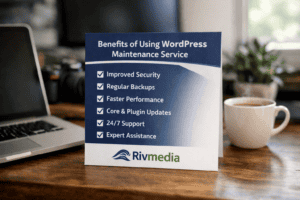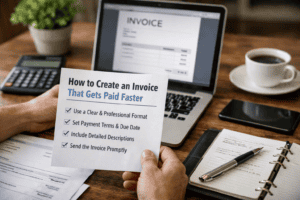Table of Contents

Research and development – also known as R&D, can be the secret to achieving greater productivity for businesses, whatever their size. Investing in R&D is what pushes technological developments not just inside of companies but for entire countries and continents. Improving technology is one way for a company to distinguish itself from the competition. But is R&D worth the investment?
R&D is where companies can create new products or improve existing ones and, by rigorous testing and prototyping, ready them for the market.
There are a variety of business benefits linked to R&D. Still, the main question for many businesses would be about resources: If they do not have any in-house R&D capabilities, are there any ways to leverage the potential for research and development so they can reap those benefits and rewards?
One approach is to outsource research and development. Obviously, this means finding the right kind of service and creating the kind of close connection that will allow a company to exploit opportunities for research and development.
The Government’s R&D tax credits, where small and medium-sized businesses are eligible for R&D tax relief, provide additional incentive for taking this path.
Is R&D Worth it?
R&D is helping businesses expand. Research and development is the process by which they will acquire greater knowledge and experience that will allow them to design, improve and enhance their products. It may be about implementing something completely different or adding enhanced functionality to existing goods or services.
For many UK manufacturers, innovation now plays a crucial role, allowing them to deliver added value to its customers and buyers, and also to draw on the significant benefits of new product lines.
R&D is the process by which these manufacturers can transform concepts into practice, and the most successful corporations have integrated R&D into their overall business strategies, making it a core tenet of the strategy.
What Does Research And Development Mean In Reality?
It is an investigation, but it also applies to pragmatic research and experimentation. Basic or applied research may typically take place, followed by development and prototyping.
It is about discovering the possibilities and thereby opening up new opportunities. Research & development may result in new products or services, or even in the innovation of products, where, for example, the enhancement of smart technology adds additional dimensions to the inherent value of the products themselves.
Key Benefits of R&D
R&D is not restricted to large companies. It has significant benefits for small and medium-sized companies searching for ways to perform more effectively.
Although creating a unique selling point (USP) is cited as a key quality for companies, it can be a challenge to achieve in reality. However, R&D is a straightforward way of working for and winning the USP.
The theoretical approach to creating a USP is to study new product or service concepts.
R&D may also be a market generator, either by generating new revenue sources or by gaining fresh investment on the back of creativity and new ideas.
It also offers an excellent framework for collaborative work and effective collaborations, further improving the competitive advantage of an organisation.
R&D helps build awareness and reinforce brands. If a brand is known for creativity and for staying ahead of the curve, this can be a very powerful thing, helping to build a momentum that means more sales and more investment.
R&D and Tax
The UK Government’s R&D tax credits are tax incentives that allow eligible SMEs to claim up to 33% of their R&D costs. This also applies to projects that are not, in the end, satisfactory. Larger corporations can demand up to 10% of their R&D investment to be refunded.
Companies can choose either to have an R&D tax exemption, to minimise their corporation tax bill, or to obtain a tax credit.
The money then enables companies to make more of their R&D by investing in more equipment and personnel, or by outsourcing, recruiting and commissioning R&D progress.
What Qualifies as R&D For Tax Relief Purposes?
This can include changing existing systems or products in order to enhance their quality, capability or performance. It may be about designing new systems or applications or finding solutions to specific problems.
It can entail improving the quality of the product or service.
For example, the push to increase productivity and reduce production costs cuts through a wide variety of industries.
Making Plans For The Year Ahead
What realistic steps should businesses take to boost their performance and grow?
The National Center for Universities and Business (NCUB) focuses on cooperation between businesses and universities, and R&D is a key field.
The phase of university business partnership is one in which the expertise acquired and developed in universities can be used as a pillar of the business strategy. Study is a vital element of this, and as a result, several organisations are now partnering with universities, providing internships to promising students.
This is a particularly useful way for companies without their own in-house R&D resources to bring in outside expertise while providing something of value in exchange.
Another path to R&D is the establishment of trustworthy relationships with professional suppliers of these services, who can provide on-the-ground experience and realistic implementation of new concepts by prototyping.
Which Companies Benefit The Most From R&D?
Some examples of companies in the UK to benefit from a research and development department have included:
- Dyson
- Amazon
- GW Pharmaceuticals
- Atlassian Corporation
- Network Rail
Although these are big companies, you do not have to be a multi-million-pound company to benefit from research and development.
What Activities Are Classed As R&D?
Research and development ( R&D) cover practices conducted by businesses to evolve and launch new products and services. Often this is the first stage in the phase of growth. Usually, the aim is to sell new goods and services and add them to the firm’s bottom line.
This can include but is not limited to:
- Software design and development
- Game design and development
- Websites & applications that provide a service or make consumers lives easier like brokerage platforms.
- Development of automated systems
- Development of robots or computers
- Improving your productivity as a company and developing and putting new systems in place
- Even web design and development can be claimed for.
Who Calculates Your R&D?
Many companies are put off by research and development because it can be quite time consuming, especially if it’s you who has to provide all of the data to give to your accountants to calculate however there are easier solutions, especially for SME’s and those with a fair turnover. Auditors and R&D specialists are a great solution as they will come in, calculate everything for you and only take a small commission and no commission if your claim is not successful whereas hiring one of the big four like a lot of the larger companies will cost you a lot of money and is not necessary unless you have millions to claim for, the big fours fees are often very high, and they might not necessarily get you the best results or return from your R&D claim.
Who Are The Big Four?
The big four accountancy firms are:
While these companies make R&D claims and handle the accountancy for large investors in R&D, they aren’t necessary specialists. Specialists can work with any accountants even the big four to ensure you claim the absolute maximum amount you can and they’ll even back and pay your legal expenses if they are ever questioned so as a tip from us, always hire yourself an R&D specialist to claim for you. It will make your accountant’s life way easier, and you’ll get back what you’ve put in!
If you’ve got any tips for claiming for R&D then leave a comment below to help and assist our other readers. If you’re an R&D specialist claims company and you want to be featured on this blog post or in another one of our blogs then get in touch today, our readers would love to hear what you have to say.










